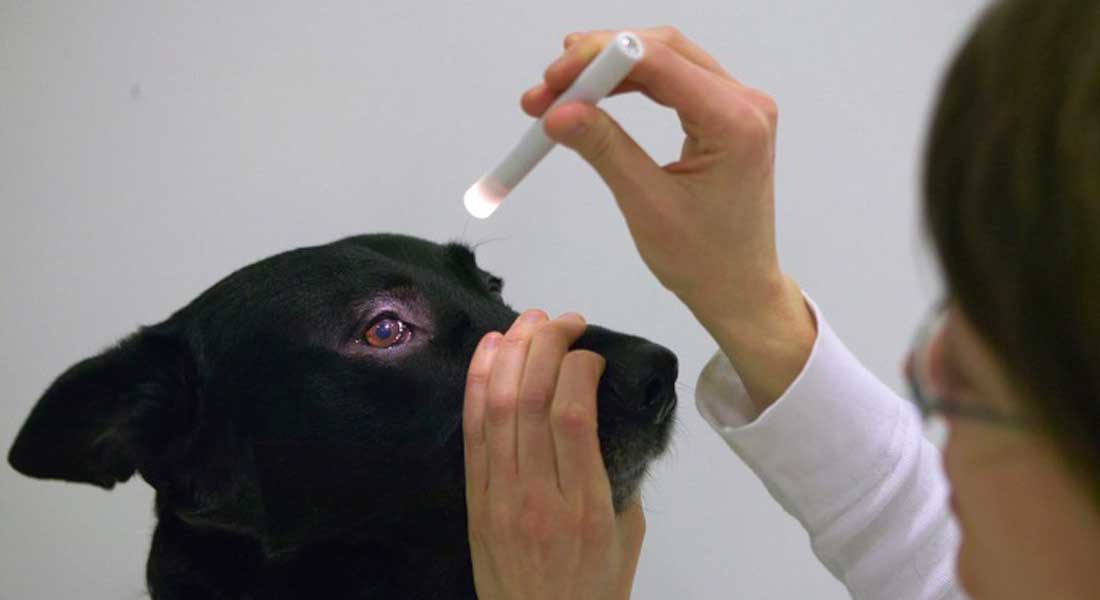Companion Animal Neurology - Applied Clinical Neurology
The neuroanatomical and clinical platform
This course is a specialisation course at the Master of Companion Animal Clinical Science. The Master is a post graduate education targeted small animal veterinarians seeking Continuing Professional Development (CPD).

This course module has a strong emphasis on the principles and practical application of the neurological examination, applied neuro-anatomy, lesion localization and the characteristics, therapeutic options and prognosis of specific neurological diseases of the central and peripheral nervous system, as well as planning of diagnostic procedures.
The level of prior knowledge and skills within clinical neurology from both veterinary candidate level and the compulsory part of the master-education will be further developed in order to form a solid platform within clinical neurology. In theory and by practical exercises, the participant can expect that professional skills and competences within the subject of clinical companion animal neurology will be extended at an advanced level.
The participants’ will be encouraged to define, identify and discuss veterinary methodology and paraclinical tools in systematised reflective clinical decision making in companion animal clinical neurology.
Read more about the Master of Companion Animal Clinical Science.
Lectures, e-learning, theoretical and practical exercises. Case-study work.
As part of the course, you will have to perform oral presentations and hand in a number of written exercises / cases and procedure protocols.
Knowledge
Having completed the course, the student must be able to:
- Define, identify and discuss veterinary diagnostic methodology and paraclinical options in systematised reflective clinical decision-making in companion animal clinical neurology.
- Explain, reflect and demonstrate a systematic clinical approach to the neurological patient at an advanced level.
- Reflect on the significance of applied neuro-anatomy in the clinical approach to the neurological patient.
- Demonstrate critical reflection with respect to diagnostic planning in a specialty practice situation
- Discuss the fundamental prerequisites for appropriate preparation of diagnostic protocols.
- List appropriate differential diagnoses according to the neurological signs and the development of disease.
Skills
Within the area of clinical neurology, the graduate must be able to:
- Apply methodologies such as performing and applying clinical neurological examination and use basic diagnostic tools for relevant neurological cases in companion animals with the purpose to assess CNS function and detect CNS and PNS lesions.
- Analyse and reflect on collected data in order to discriminate between neurological and non-neurological conditions and relevant neurological differential diagnosis.
- Demonstrate the systematic approach to interpret, assess and reflect on collected patient data in order to localize a lesion neuro-anatomically and identify the cause of neurological disease.
- Make clinical decisions, arrive at a diagnosis and consider evidence based scientific approaches in order to plan and administer further appropriate diagnostics, patient therapy and management.
- Communicate effectively in writing and pass on results to relevant parties.
Competences
The graduate must be able to:
- Evaluate companion animal diseases within clinical neurology.
- Work independently, take responsibility for, predict, prognosticate and make decisions within clinical neurology at an advanced level.
- Make ethical considerations regarding diagnostic methods and therapeutic initiatives and place these into perspective.
- Educate owners of acute and chronic neurological patients concerning acute and long-term medical treatment, respectively, as well as recovery and rehabilitation.
- Independently evaluate and structure own learning processes and continuously obtain new knowledge at a specialty level within companion animal clinical neurology.
- Use relevant scientific literature in the field of companion animal clinical neurology.
- Evaluate different patient types combining the above achieved skills.
You must meet the following criteria to be admitted to this course:
- Hold a degree in Veterinary Medicine
- Hold one of the following certifications
- DVA Certificate in Small Animal Diseases (equivalent to the 4 compulsory courses of the Master of Companion Animal Clinical Science)
- Swedish / Norwegian / Finnish specialist in diseases of dogs and cats
- Equivalent competences
- Have a minimum of 2 years of relevant work experience from companion animal practice
- Be proficient in English
Find detailed information about the formal requirements for this course.
The course responsibles at the specialisation track in Companion Animal Neurology are:
- Professor Mette Berendt, Department of Veterinary Clinical Sciences, The Faculty of Health and Medical Sciences, University of Copenhagen, Denmark.
- Associate professor Hanne Birgit Gredal, Department of Veterinary Clinical Sciences, The Faculty of Health and Medical Sciences, University of Copenhagen, Denmark.
Lecturers at the specialisation track are:
- Joane Parent, DMV, MVetSc, DipACVIM Neurology, Professor Veterinary Neurology, University of Montreal, Canada
- Fraser McConnel, BVM&S, DVR, DipECVDI, CertSAM, MRCVS, RCVS Specialist in Small Animal Diagnostic Imaging & EBVS® European Specialist in Small Animal Diagnostic Imaging, University of Liverpool, United Kingdom
- Patrick Kenny, DVM, BVSc (Hons) DipACVIM Neurology, DipECVN, FHEA, MRCVS, SAHS-Vets Specialist Hospital, Sidney, Australia
Course details
| Duration: | 5 days on campus |
| Dates: | 13-17 November 2023 |
| Frequency: | Only available every second year |
| Course capacity: | 12 students |
| Place: | University Hospital for Companion Animals, Frederiksberg, Denmark |
| Course fee: | EU/EEA citizens Single course participant: 33,500 DKK Master student: 30,000 DKK Non-EU/EEA citizens Single course participant: 37,740 DKK Master student: 34,240 DKK Tuition fees include course materials and lunch/coffee. Books are not included in the tuition fees and must be purchased by the participants. |
| Level and credit: | Master course; 6 ECTS |
| Examination date: | Please consult the exam schedule |
| Application deadline: | Master's programme: 1 May 2023 Course: 18 September 2023 |
| Admission: | To be admitted, you must meet the admission criteria for specialisations at Master of Companion Animal Clinical Science |
The opening of the application period is announced via the programme newsletter.
Download course curriculum
